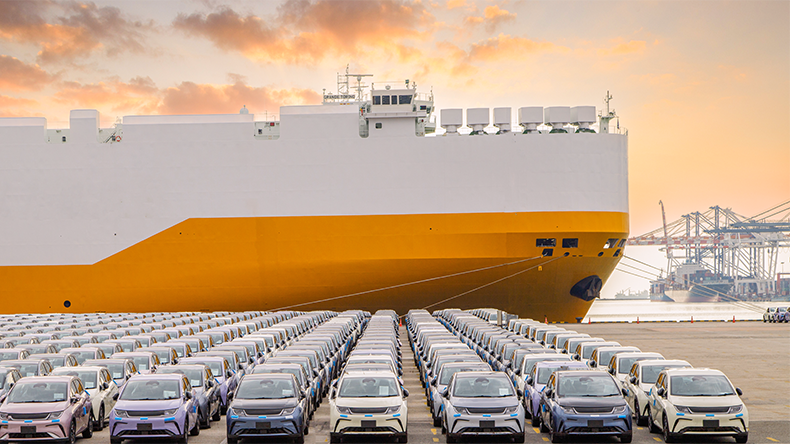Globalisation almost over for marine underwriters, warns IUMI president
- Trade tensions and armed conflicts reshaping world trade
- But marine insurance markets stable
- Challenges may lead to ‘new type of shipping industry’
Hard national interests taking precedence over co-operation, Denèfle argues
MARINE insurers are living through the end of the era of seamless globalisation, the president of the International Union of Marine Insurance has warned.
Escalating trade tensions and regional hostilities are reshaping the foundations of international commerce, even though some of the earlier uncertainty over US tariffs has now evaporated, Frédéric Denèfle added.
Vessels are increasingly avoiding high-risk regions and using longer, costlier routes, while inland transport and nearshoring look to be on the cusp of a resurgence.
But the resultant reorganisation of cross-border supply chains will require investment in new shoreside infrastructure, while rising prices for goods will have economic impacts including inflation.
Denèfle, managing director of European war risk consortium Garex, was speaking at the first major session of IUMI’s annual conference, which opened in Singapore this morning.
The umbrella organisation currently brings together 42 national and marine market insurance and reinsurance associations.
His speech drew attention to military conflicts and shifting trade patterns, which he believed have now reached a critical turning point.
“The end of globalisation is fast approaching. We’ve already witnessed a slowdown in recent years, but post-Covid the trend has accelerated,” he said.
“Conflicts in Ukraine/Russia and the Red Sea are a stark reminder that hard national interests are taking precedence over international co-operation and peaceful economic growth.”
Denèfle contended that the changing environment does not signal the end of international trade, but rather a mutation into a new era, which marine insurers must take on board.
Traditional shipping and logistics practices are being disrupted and the global trade environment is no longer moving toward seamless integration.
Instead, fragmentation is taking hold, creating challenges for risk assessment, underwriting and innovation.
However, these dynamics could give rise to a new type of shipping industry, which is more adaptive, technology-driven and strategically diversified.
Despite these potential shifts, Denèfle emphasised the marine insurance sector’s robustness and enduring relevance.
“The marine insurance markets remain stable. Financial ratings are strong, and trust in insurers remains high.
“Of course, a sharp downturn in international trade could affect global premium volumes, meaning we would need to revisit business plans and underwriting policies. But for now, our sector is demonstrating remarkable resilience.”
Other probable trends identified by Denèfle include increased reliance on artificial intelligence, the rise of alternative trade corridors and new emerging markets.




